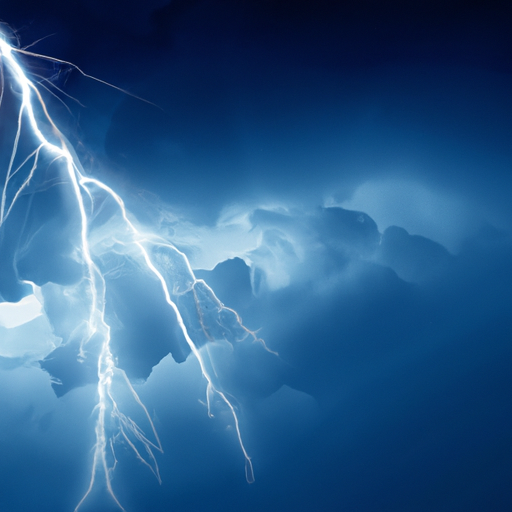In “61 Intense Poems About Anger and Rage,” we explore the raw emotional power of anger and its often overlooked connection to inner pain. Through a collection of 61 intense poems, we dive into the cathartic process of acknowledging and expressing these complex emotions. The article delves into the significance of reading poems about anger as a means of healing and feeling understood. We emphasize the importance of addressing the root causes of anger and finding ways to heal the underlying hurts. Additionally, the content features captivating poems about anger and depression, providing insight into the profound interplay between these two emotions. As a bonus, the article includes short yet impactful poems about anger, leaving readers with a powerful and thought-provoking literary experience.
Importance of Acknowledging and Expressing Emotions
Understanding Emotions
Emotions are an inherent part of being human. They help us navigate the world around us and connect with others on a deeper level. Understanding and acknowledging our emotions is crucial for our overall well-being and mental health. When we are aware of what we are feeling, we can better process and respond to our experiences.
The Power of Expression
Expressing emotions is equally important as acknowledging them. By giving voice to our emotions, we are able to communicate our needs, desires, and boundaries effectively. It allows us to connect with others and build meaningful relationships. Moreover, expressing emotions can be a form of self-expression and creativity, enabling us to explore and understand ourselves better.
Benefits of Acknowledging Anger
Anger is one of the many emotions we experience, and it often gets a negative reputation. However, acknowledging and understanding anger is crucial for our emotional well-being. When we suppress or ignore our anger, it can lead to increased stress, resentment, and even physical health issues. By acknowledging and addressing our anger, we can learn healthier ways to cope with it and prevent it from negatively impacting our relationships and personal growth.
Understanding Anger as a Secondary Emotion
Anger Stemming from Internal Hurt
Anger is often described as a secondary emotion, meaning it arises from a deeper underlying emotion, such as pain, fear, or frustration. Sometimes, anger masks vulnerability and acts as a protective shield. When we acknowledge anger as a secondary emotion, we can delve deeper into the root causes and address the true source of our distress.
Emotional Layers of Anger
Anger is not a one-dimensional emotion. It can manifest in various degrees, ranging from irritation to rage. Understanding the different layers and intensities of anger allows us to recognize the nuances in our emotions and respond accordingly. By exploring these emotional layers, we can gain insight into our triggers and find healthier ways to express and manage our anger.
Recognizing the Root Causes
To effectively address our anger, we must identify the root causes. This requires introspection and self-awareness. By recognizing the underlying hurts or unresolved conflicts that contribute to our anger, we can begin the healing process and work towards resolution. Seeking therapy or professional help can be beneficial in gaining a deeper understanding of our anger and developing healthy coping mechanisms.
Healing Through Poetry
The Therapeutic Effect of Poetry
Poetry has long been celebrated as a powerful medium for emotional expression and healing. Through carefully crafted words and vivid imagery, poetry allows us to delve into our own experiences and connect with the experiences of others. Reading or writing poetry can be a therapeutic process that engages our emotions, promotes self-reflection, and provides a sense of catharsis.
Feeling Heard and Validated
When we read poems about anger, we often find solace in realizing that we are not alone in our feelings. Poetry can provide a sense of validation, allowing us to feel heard and understood. It offers a safe space where we can explore our emotions without judgment or shame. For those struggling to express their anger, reading anger-themed poetry can provide a sense of comfort and validation.
Finding Comfort in Artistic Expression
Engaging with poetry can also inspire us to express our emotions through our own creative outlets, such as writing or visual arts. By channeling our anger into artistic expression, we can find a constructive and cathartic way to process and release our emotions. Artistic expression allows us to transform our anger into something meaningful and beautiful, fostering personal growth and healing.
Addressing the Source of Anger
Identifying Triggers and Patterns
To effectively address anger, it is crucial to identify the triggers and patterns that contribute to its manifestation. By recognizing the situations, behaviors, or thoughts that provoke our anger, we can develop strategies to prevent or manage it more effectively. Keeping a journal or seeking therapy can help in identifying these triggers and gaining insight into our emotional responses.
Seeking Professional Help
While acknowledging and exploring our anger on our own is a valuable step towards healing, sometimes seeking professional help is necessary. Therapists and counselors can provide guidance, support, and tools for managing anger in a healthy way. They can help us navigate the deeper emotional wounds that contribute to our anger and facilitate the healing process.
Healing Underlying Hurts
Addressing anger goes beyond managing the emotion itself; it involves healing the underlying hurts and conflicts that fuel our anger. This often requires introspection, forgiveness, and a willingness to let go of past pain. Healing underlying hurts can be a challenging but transformative journey that allows us to find peace and create healthier patterns of emotional expression.
Poems About Anger and Depression
Exploring the Dark Emotions
Anger and depression often go hand in hand, as they are both powerful and complex emotional experiences. Poems about anger and depression delve into the depths of these dark emotions, capturing the raw intensity and despair that can accompany them. These poems offer a space to face and explore the pain, providing solace to those who resonate with these emotions.
Conveying the Despair and Hopelessness
Anger and depression can evoke feelings of hopelessness, isolation, and despair. Poems about these emotions convey the depths of these feelings in a way that resonates with readers and validates their own experiences. Through poetry, individuals can find solace and comfort, knowing that others have also walked the path of anger and depression.
Authors Who Captured Anger and Depression
Several renowned authors have depicted the complexities of anger and depression in their poems. Sylvia Plath’s hauntingly beautiful verses, such as “Daddy” and “Lady Lazarus,” encapsulate the intense anger and despair she experienced throughout her life. Langston Hughes’ poem “Harlem” explores the anger and frustration of the African American community during the Harlem Renaissance. These authors, among others, have provided literary works that capture the essence of anger and depression, resonating with readers for generations.
Exploring the Power of Anger
Harnessing Anger for Positive Change
While anger is often associated with negative emotions, it can also be a catalyst for positive change. When channeled constructively, anger can motivate individuals to address injustice, advocate for societal change, or stand up for themselves and others. By harnessing the power of anger, individuals can transform it into a force for positive action and social progress.
Using Anger as a Driving Force
Anger, when directed towards personal growth and development, can serve as a driving force for self-improvement. It can push individuals to confront their limitations, set boundaries, and make positive changes in their lives. By harnessing anger as a tool for self-reflection and personal growth, individuals can utilize its energy to propel themselves forward.
Understanding the Destructive Potential
While anger can be a powerful force for change, it is important to recognize its destructive potential. Uncontrolled or misdirected anger can harm relationships, escalate conflicts, and perpetuate cycles of violence. Understanding the potential harm that anger can cause allows us to be mindful of how we express and manage this emotion, ensuring that it remains a force for positive transformation rather than destruction.
Short Poems About Anger
Expressing Intensity in Few Words
Short anger poems are an effective way to convey the intensity and immediacy of the emotion in a concise manner. These poems distill the essence of anger into a few carefully chosen words, capturing the raw power and impact of the emotion. By their brevity, short anger poems often evoke strong emotional responses from readers.
The Impact of Conciseness
The concise nature of short anger poems allows for an instant emotional connection with readers. In just a few lines, these poems can capture the essence of a moment, a feeling, or a thought, leaving a lasting impact. Their brevity also provides ample room for personal interpretation and reflection, inviting readers to explore their own emotions and experiences.
Popular Short Anger Poems
A few examples of popular short anger poems include William Blake’s “A Poison Tree,” which explores the consequences of suppressing anger, and Emily Dickinson’s “I felt a Funeral, in my Brain,” which depicts the overwhelming and destructive nature of anger. These poems, among others, offer glimpses into the complex and intense emotions associated with anger in a succinct and powerful way.
The Transformative Journey Through Anger
From Rage to Understanding
Acknowledging and exploring anger is a transformative journey that goes beyond expressing and managing the emotion. As we delve deeper into our anger, we journey from initial rage to a place of understanding. This understanding allows us to uncover the root causes of our anger, gain insight into ourselves, and develop compassion for both ourselves and others.
Finding Peace through Catharsis
The journey through anger is often marked by moments of catharsis. Through creative outlets, such as writing, art, or even physical activity, we can release the pent-up energy and emotions associated with anger. This catharsis provides a sense of relief, enabling us to find moments of peace and clarity amidst the turbulence of our emotions.
The Emotional Evolution
As we navigate the complexities of anger, we undergo an emotional evolution. We learn to embrace the full range of our emotions, including anger, without judgment or suppression. This journey allows us to grow emotionally, develop healthier coping mechanisms, and foster meaningful connections with others.
Listicle: 10 Intense Poems About Anger and Rage
Poem 1: Title by Author
Description: A brief overview of the poem, highlighting its themes and emotional intensity.
Poem 2: Title by Author
Description: A summary of the poem’s key elements, focusing on its portrayal of anger and rage.
…
Poem 10: Title by Author
Description: A glimpse into the final poem of the list, emphasizing its exploration of anger and its intense emotional impact.
Table: Poems Addressing Anger and Depression
| Poem Title | Author | Themes Explored | Publication Year |
|---|---|---|---|
| Poem 1 | Author 1 | Anger, depression, despair | Year |
| Poem 2 | Author 2 | Anger, isolation, hopelessness | Year |
| … | … | … | … |
| Poem 10 | Author 10 | Anger, emotional growth, healing | Year |
The table showcases a selection of poems that address anger and depression, providing an overview of their themes and authors. It serves as a reference for readers who wish to explore further into these powerful emotions through poetry.
In conclusion, acknowledging and expressing emotions, particularly anger, is vital for our emotional well-being. By understanding the root causes and exploring various outlets, such as poetry, we can heal and transform our anger into a positive force for personal growth and social change. Through the power of words, both in long-form and short-form poetry, we can find solace, express ourselves, and cultivate empathy towards ourselves and others. So let us embrace our emotions, including anger, and embark on a journey towards emotional understanding and healing.



